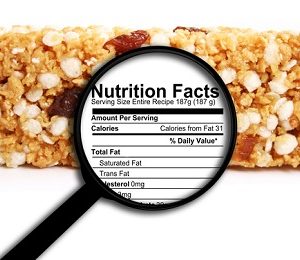What Are Superfoods? How Do They Benefit Your Health?
The Definition of Superfoods
The definition of Superfoods is a nutrient-rich food considered to be especially beneficial for health and well-being. What does this mean and how do they benefit us specifically?
Scroll through the internet, and you will find all the pros and cons of the term “Superfood”. Depending what side of the argument you are on will depend on what your definition would be for Superfood. There is no true medical term for Superfood in the allopathic community, however in the holistic community it is defined as “Superfoods are usually rich in phytochemicals, which are chemicals that are known for having disease-fighting properties”.
Either side, whether they agree with the term “Superfood” or not, believe certain foods are much more nutrient dense than other foods. There is no denying they reduce the risk of chronic disease because they shield our cells from damage. Superfoods are powerhouses that have large amounts of polyphenols, antioxidants, minerals and vitamins.
Superfoods Are High On the ORAC Scale
ORAC, which stands for Oxygen Radical Absorbance Capacity, measures foods’ ability to scavenge free radicals. Free radicals are unstable molecules that can cause damage to your body at the cellular level. The damage to the cell is caused by free radicals which have been implicated in the development of several diseases and disorders, including macular degeneration, cardiovascular disease, thrombosis, asthma, impairment of the immune system, atherosclerosis, Alzheimer’s disease, diabetes, and rheumatoid arthritis.
What are these foods? How do you fit them into your daily nutrition plan?
You will be surprised to find that most of these foods are already a part of your food intake, if you gravitate away from processed food and follow a healthy lifestyle (which includes whole foods). Many of the highly nutrient dense foods are common and can be easily added to your daily nutrition plan, while other are more exotic, but certainly worth the trouble of obtaining.
Here is a list of some common Superfoods that can be put into your diet on a regular basis.
Turkey: Skinless turkey has about seven grams of protein per ounce and is high in B vitamins, zinc, and selenium. It also has a full amino acid profile and very little saturated fats.
Nuts: Almonds, macadamia nuts, hazelnuts and pecans are considered to be heart-healthy Superfoods. The American Heart Association, recommends eating four servings of raw or dry-roasted, unsalted nuts a week. A serving of nuts is 1.5 ounces of whole nuts or 2 tablespoons of a nut butter. Nuts are good sources of protein, especially for vegans and vegetarians. They are also a clean source of polyunsaturated and monounsaturated fats when eaten in moderation.
Cacao: Rich and delicious it contains over 300 essential nutrients including protein, fat, B-vitamins and minerals including calcium, Sulphur, magnesium, phosphorus, iron and zinc. Cacao is the most antioxidant-rich food in the world. The antioxidants present in cacao are flavonoids, including anthocyanidin. These flavonoids are closely involved in the preventing free radical damage and they also have an important role in boosting collagen protection, which means it protects us from cancer and has anti-aging benefits.
Salmon: Low in saturated fat and rich in omega-3 fatty acids; salmon plays a vital role in heart health (because it reduces triglycerides and decreases the risk of abnormal heartbeats). Salmon is also high in essential minerals such as iron, calcium, selenium, phosphorus and vitamins A, B and D. The American Heart Association recommends eating at least two, 3.5 ounce servings of fish a week.
Blackberries | Blueberries | Black Raspberries| Red Raspberries | Strawberries: Berries contain some of the highest antioxidant levels of any fruit. Blue, purple, and red color pigments in the berries are powerful antioxidants called Anthocyanins. These antioxidants neutralize free radicals and unstable oxygen molecules, which damage the cells and are one of the leading causes of disease and aging. They also contain catechins which are flavanols that support the antioxidant defense system. The American Heart Association recommends about 4.5 cups or nine servings of fruits and vegetables a day.
Kale: Kale is an excellent source of vitamin B6, dietary fiber (5 grams/cup), calcium, potassium, vitamin E, vitamin B2, iron, magnesium, vitamin B1, omega-3 fatty acids phosphorus, folate, niacin and even protein. Curly Kale is a nutrient dense powerhouse packed with the antioxidants vitamin C, beta-carotene, kaempferol and quercetin. Researchers can now identify over 45 types of flavonoids in kale. Kaempferol and quercetin top the list, these flavonoids have both antioxidant and anti-inflammatory benefits that give it a leading dietary role for avoiding chronic inflammation and oxidative stress. Experts recommend eating 3/4 cup of cruciferous vegetables daily or approximately 5 cups per week.
Pumpkin: Pumpkin is low in calories with just 15 calories per 1/2 cup, and it is high in fiber, zinc, vitamin C, and it is full of iron. It’s high in beta-carotene, lutein and zeaxanthin, which help prevent the formation of cataracts and reduce the risk of macular degeneration. Pumpkin seeds are an incredible source of protein and fiber, iron, magnesium, phosphorus, potassium, zinc, copper, and manganese.
PUMPKIN PIE SMOOTHIE
INGREDIENTS
- 1 cup Organic Canned Pumpkin
- 3 Pitted Dates
- 2 tablespoon organic Tahini
- 1 tablespoon ground Flaxseed
- 1 tbsp Chia seeds
- 1 teaspoon Pumpkin Pie Spice
- 1½ cups Coconut Milk or Coconut Cream for a richer shake
- 2 tablespoons chopped Almonds
- 1 cup organic Baby Kale
- 1 teaspoon chlorella {optional}
- 1 cup ice
INSTRUCTIONS
Combine all of the ingredients in a blender. Blend until smooth and serve immediately.
Whether you agree with the term Superfood or not there is no denying that these and many more “Superfoods” are extremely nutritious, whole foods offering a broad range of essential micronutrients that we need for our bodies to run smoothly and stay disease-free. They are also packed full of antioxidants, sulforaphanes, and healthy anti-inflammatory fats which make these foods just that much more super.
References: https://www.naturalnews.com/042036_cacao_superfood_antioxidants.html#ixzz4PMoKk9hb
https://mayoclinichealthsystem.org/hometown-health/speaking-of-health/get-your-fill-of-fall-superfoods
https://www.health.com/health/gallery/0,,20306775,00.html
https://www.realsimple.com/food-recipes/shopping-storing/food/superfoods/what-are-superfoods
https://www.eufic.org/article/en/artid/the-science-behind-superfoods/
https://www.healwithfood.org/health-benefits/kale-superfood.php#ixzz4PNSBSWwx
https://www.healwithfood.org/health-benefits/kale-superfood.php#ixzz4PNSsehSo
https://www.myrecipes.com/healthy-diet/super-foods/health-benefits-of-pumpkin
-
 ACE Fitness Nutrition Specialist$366.98
ACE Fitness Nutrition Specialist$366.98 -
 Back to School Nutrition Podcast$15.75
Back to School Nutrition Podcast$15.75

